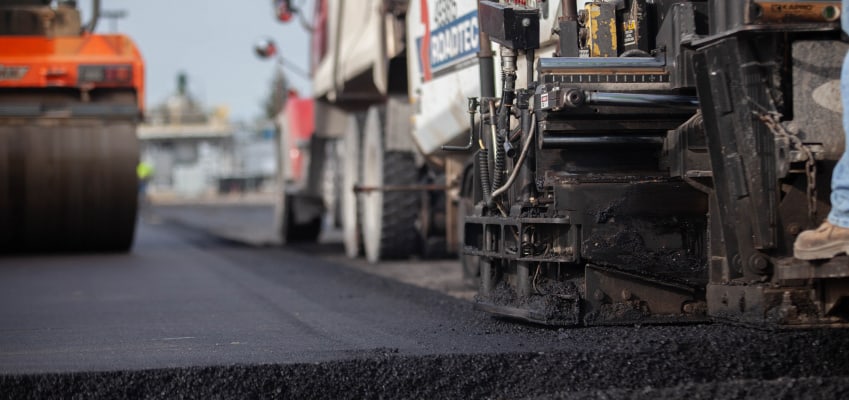
USB, Iowa Soybean Association, Asphalt Paving Association of Iowa, and a team of researchers at Iowa State University debuted a cost-effective asphalt biobased polymer using high oleic soybean oil in 2019. This summer, they demonstrated it with multiple municipalities. The product is also in its second year of a three-year evaluation at the National Center for Asphalt Technology at Auburn University in Alabama.
Each mile of a typical four-lane highway would use the equivalent oil from approximately 1,500 bushels of high-oleic soybeans and an additional 1,500 bushels of commodity beans, calculates Eric Cochran, an Iowa State professor of Chemical and Biological Engineering.
“The soy-based polymer improves performance while it also promotes environmental stewardship—not only because it’s biobased, but also because you’re able to reuse more recycled asphalt content when you’re producing these roads,” says Cochran. “Importantly, it is cost competitive with asphalt paving materials that depend on foreign oil instead of U.S.-grown soybeans.”
Cargill developed Anova, a biobased asphalt rejuvenator that the Missouri Soybean Merchandising Council features in the parking lot of its Center for Soy Innovation.
Minnesota counties found success with a soy-based road product, RePlay by BioSpan, that the Minnesota Soybean Research and Promotion Council introduced to them. Developed with USB support, RePlay is letting Hutchinson, Minnesota, postpone road replacements.
“We don’t have the time and resources to put toward street maintenance, so we need streets to last,” says Hutchinson’s public works manager, John Olson, who reports residents like the citrus odor and that RePlay doesn’t harm their plants.
